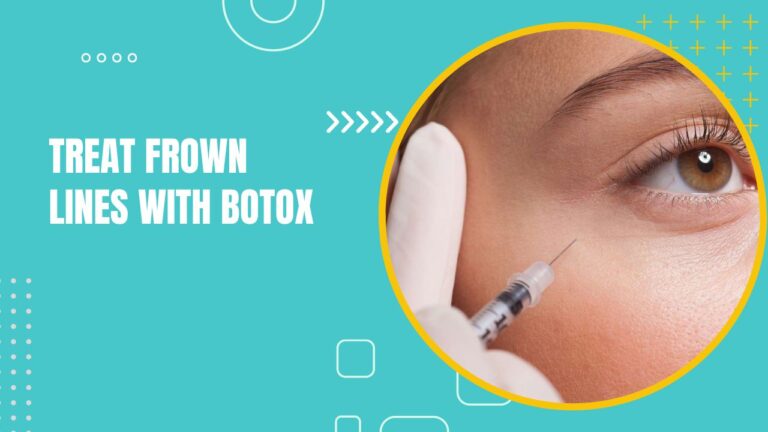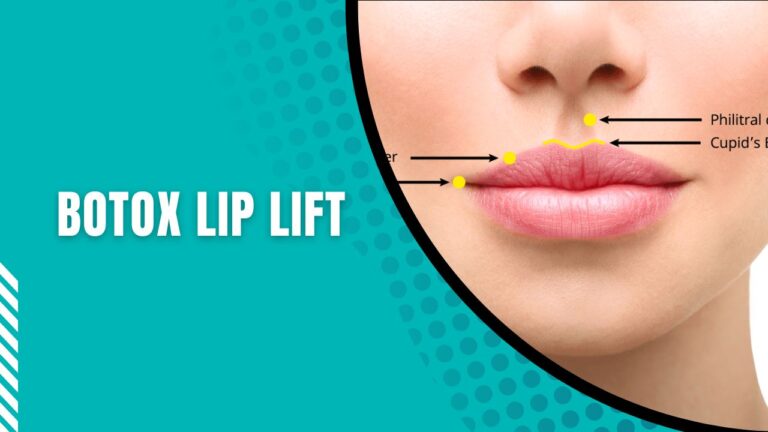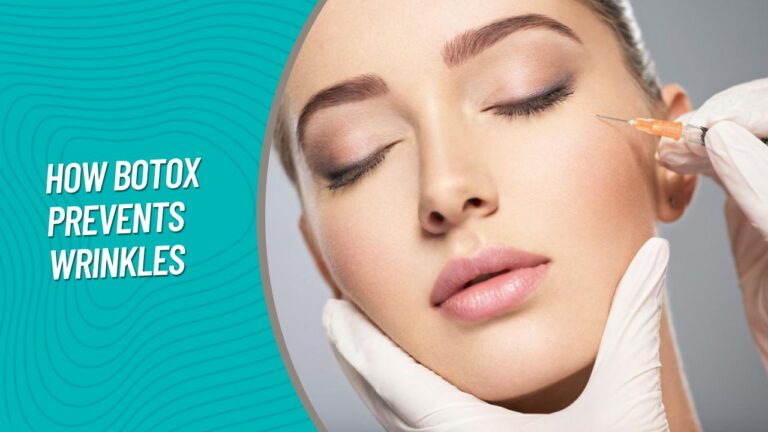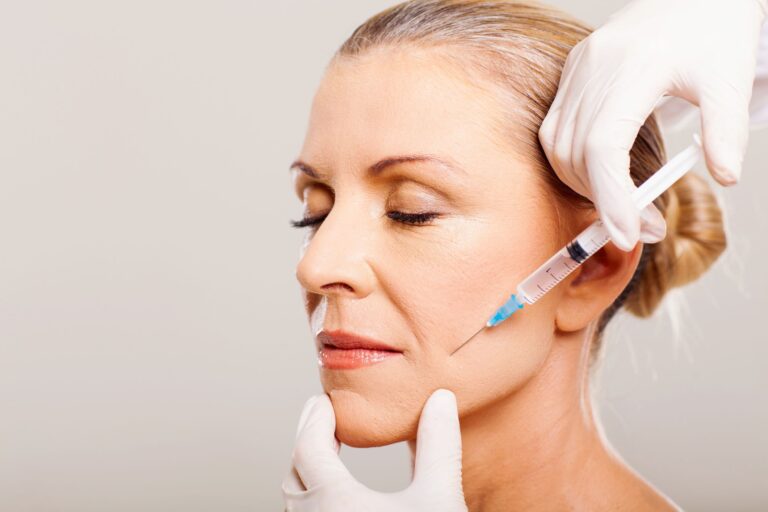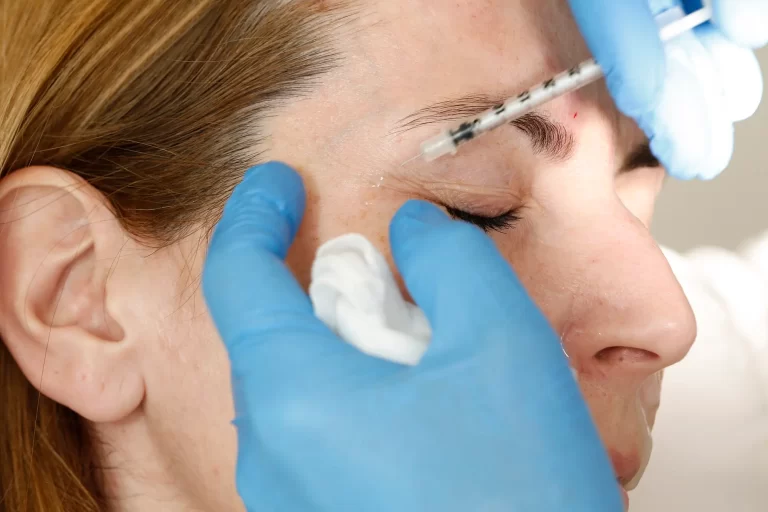Whenever most people hear about Botox, they instantly relate it to wrinkles. It is pretty obvious, as Botox injections are a widely known cosmetic treatment for achieving a youthful look.
According to recent research, botulinum injections can also help with acne. Botulinum toxin can do more than smoothen your wrinkles and fine lines. The injections can cure acne on the following parts: chest , forehead, face, shoulders and upper back.
While there are numerous ways to treat acne and scarring, Botox offers a solid solution to the oily skin problem. You no longer need to struggle with countless products as Botulin Toxin is a known cosmetic treatment to reduce acne.
What is Botulinum Toxin?
Spoiled foods such as fruits and vegetables produce a bacteria called clostridium botulinum. This bacteria produces a neurotoxin, which creates botulinum toxin. When used in its concentrated form, the toxin is deadly and can impair the nervous system, among other damages. Doctors use small amounts of diluted botulinum toxin for cosmetic purposes.
How Does it Help with Acne?
Acne occurs when the hair follicles on your skin are clogged with sebum and dead skin. Sebum is an oily matter that lubricates the hair and skin. When the glands produce too much sebum, it can cause acne since it plugs hair follicles.
Book A Consultation With Dr Tarek Bayazid
Top-rated Plastic Surgeon For Botox in Dubai
Installment Plan Available
Botox for acne procedures works by decreasing oil production. Some dermatologists share that they researched the relationship between Botox and acne when patients reported breakouts after their Botox wore off.
When a doctor injects botulinum toxins, it blocks acetylcholine, ultimately preventing wrinkling. The acetylcholine neurotransmitter plays a part in acne development. Sebaceous glands use acetylcholine during sebum production.
Botox injections block acetylcholine, thus targeting the acne problem at its roots. This injection also causes paralysis of the hair and oil gland, which contracts and produces sebum on the skin.
Additionally, Botulinum toxin injections transform how the skin over-proliferates and gets sticky. This reduces the chances of blocked pores. The injection also has anti-inflammatory properties, as it blocks the production of P. Substance P is a peptide containing amino acid residues. It acts as a neurotransmitter and serves several functions, including cell growth and proliferation.
At times, it can cause cells to produce pro-inflammatory mediators. The entire acne development process begins with systemic inflammation at the cellular level. Inflammation lowers the oxygen content in the sebum, which triggers the growth of acne-causing bacteria. The bacteria and dead skin cells multiply rapidly and colonize the hair follicle. This leads to inflamed pimples on your skin.
What Botulinum Toxins Injections help with Acne?
It’s interesting to note that both intradermal and intramuscular Botox injections could treat acne outbreaks. As the name suggests, intradermal injections are to the dermis, whereas intramuscular injections are to the muscle. The doses could vary, depending on factors such as:
- Location of the areas with acne
- Size of the area that requires treatment
Intradermal injections in very small doses have the best results for acne treatment. You cannot achieve the same diffusion level with intramuscular injections as intradermal injections.
Intramuscular injections have the potential to reach the sebaceous gland, but the best effect is achieved when the botox injection is at the surface level.
However, intramuscular injections give the best results if you want to prevent acne in the forehead area. The muscles of the face are closer to the skin in this area, thus the effectiveness.
What kind of Acne does Botulinum Toxin Cure?
There are different types of acne. Generally, whiteheads and blackheads heal smoothly. Papules, nodules, pustules, and cysts develop deeper in the skin, leading to scarring.
- Papules: Red or pink, painful bumps on the skin
- Pustules: White or yellow lesions with a red-based and filled with pus
- Nodules: These are solid and bigger than papules and pustules. They stretch deeper into the skin and are more painful.
- Cysts: Most likely to cause scarring. They extend deeper into the skin, are pus-filled, and are painful.
While Botox injections reduce oil production, their effectiveness may be limited to oil-related comedones. Therefore, you may get better results while treating whiteheads and blackheads. Cystic acne may be harder to treat with Botox injections.
How Botulinum Toxin Reduces Acne Scarring
Scarring is your body’s way of healing acne. When acne is deeply rooted, it requires more time to heal. After a breakout, your body starts replacing the lost skin tissue. When the skin tissue is too little or too much, it leads to scarring.
Too much tissue results in a hypertrophic scar, which is raised. Inadequate tissue leads to strophic scars that are depression-like. Scarring also occurs due to stretching or pulling of the skin surrounding the acne.
Botox injections are a good treatment option; they relax the tensed facial muscles, which reduces stress on the acne wound. This helps rid the skin of the scars, by reducing their appearance. Along with the Botox injections, some doctors can also inject dermal fillers. The dermal fillers contain hyaluronic acid and collagen, which fill up the scars.
Who are Ideal Patients?
Botulinum toxin injections for acne treatment need to be done on patients older than 20 years. At this age, the hormonal changes are permanent. Dermatologists do not recommend Botox injections for pregnant and breastfeeding women. While there isn’t sufficient data to support this recommendation, staying safe is best.
Conclusion:
According to dermatology, patients who suffer from acne can rely on botox for treatment. While Botox injections offer patients considerable results, combining them with other acne remedies is best. When using botox to treat acne, it’s best to take a multifaceted approach.
Botox is not a stand-alone treatment for acne. Your doctor needs to address other causes of acne, apart from oily skin, to address the problem fully. It’s also important to note that the effectiveness of neurotoxin injections lasts about four months.
It’s essential to consult with your plastic surgeon or dermatologist for advice on the best treatment. Botox treatments for acne are still in the early development stage, so you need a plastic surgeon at par with the current developments. At Dr. Tarek Aesthetics, you can expect up-to-date techniques that will heal your acne. You can rely on Dr. Tarek for the best botox treatments. Call today to book an appointment.
Frequently Asked Questions What is Botox?
Botox is a neurotoxin produced by the bacterium Clostridium botulinum. When used in small doses, it can be used to temporarily paralyze muscles, reducing the appearance of wrinkles and fine lines.


